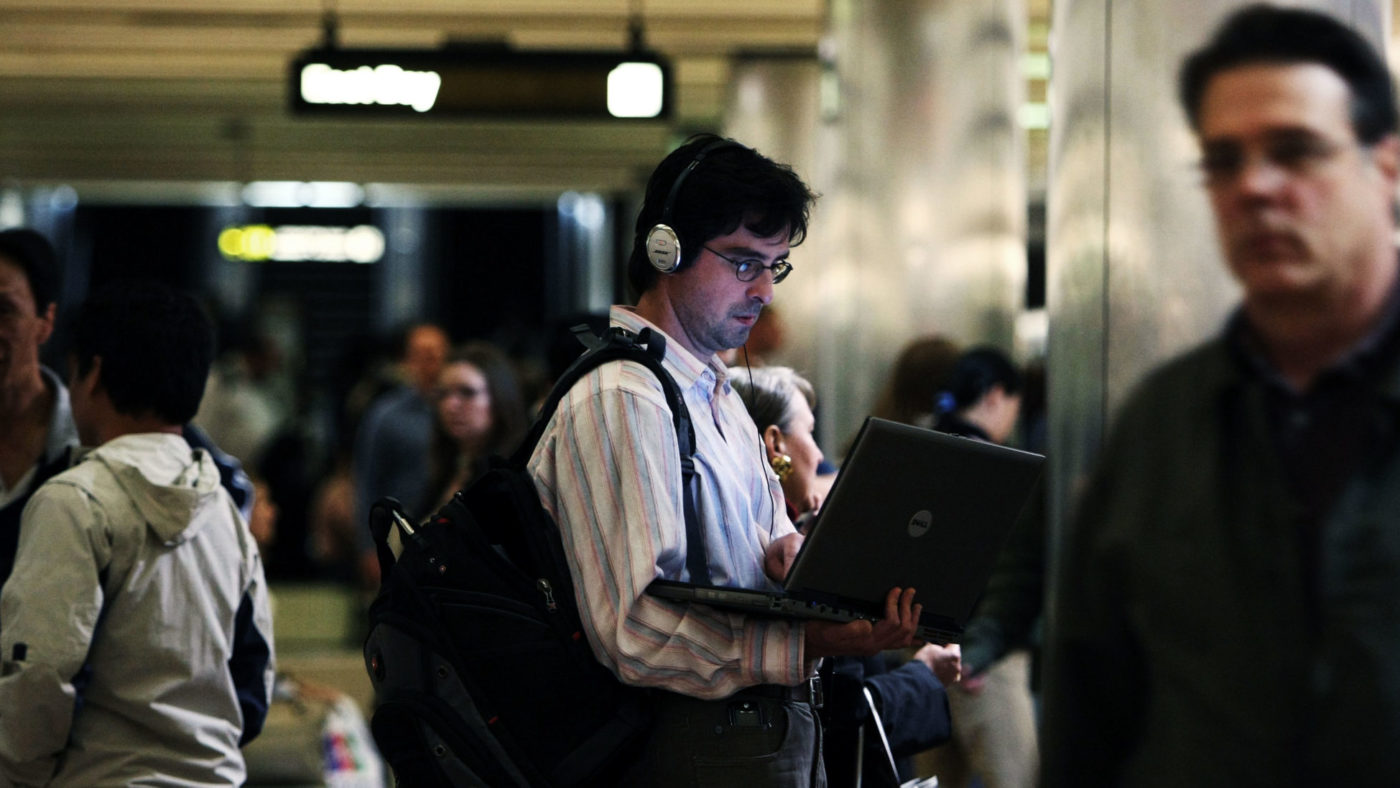A new study suggests commuters spend so much time attending to work emails on the train or the bus that their journeys should be counted as part of the working day. The report has been picked up by the BBC and there will no doubt be calls for a new law to be passed to ensure that organisations pay their employees for their commute or to prevent employers sending their staff emails outside of office hours.
The research from the University of the West of England does raise important questions about work-life balance and whether or not the blurring of when the working day starts and ends is a good thing.
It is important to point out at the start that responding to work emails is, of course, work. But does this mean that the law should force employers to recognise it as such?
There is a great deal of evidence which suggests that working very long hours and constantly checking work emails outside of the office is bad for our physical and mental health. For example, one study found that responding to work emails at home can lead to workers becoming emotionally exhausted.
Research from UCL revealed that working long hours can increase the risk of stroke, while another study found that checking your work email at home, or taking a call from the boss on weekends, could lead to psychological, gastrointestinal, and cardiovascular problems.
So, checking work emails when not in the office clearly isn’t good for us. However, it would be wrong to make companies pay their employees for this “extra work” or to introduce a law stopping employers contacting their workers outside office hours.
Although such a law has been introduced in France, to suggest we should follow suit is to ignore the economic landscape of the UK. We have an economy dominated by services. Clients have expectations for the companies they hire and it is simply not be possible for an organisation to be unreachable for hours. Given the importance of services to the UK, such a law would undoubtedly damage the economy.
What is more, such a move would simply be another harmful, restrictive piece of employment legislation. There is a great deal of evidence which suggests restrictive labour markets can lead to the relegation of new entrants and, to a disproportionate extent, new entrants who are women or immigrants.
The UK is heavily reliant on foreign investment, and the importance of a flexible labour market for that investment cannot be overstated. One academic study found that investors view it as an incredibly important factor when it comes to deciding whether or not to invest in a country.
Forcing employers to count checking emails as ‘work’ could have unintended consequences for workers too. If an organisation has to pay their employees for the work they do during their commute then it will place pressure on their bottom line. They will be forced to make savings by cutting staff benefits, lowering wages, or even letting some workers go.
Furthermore, how can employers check that their employees are actually working during their commute? It could lead to an unacceptable infringement of workers’ privacy as companies constantly monitor their employees’ computers and phones.
It also ignores the fact that many employees are choosing to respond to emails during their commute. For example, the study includes quotes from respondents saying things such as: “It’s dead time in a way, so what it allows me to do is finish stuff and not work in the evenings”. Many commuters also said that they enjoy the “buffer” of being able to get tasks completed on their way to work.
What’s more, it is in the interest of organisations to ensure that they have workers who are happy and productive. If this means utilising the huge benefits of technology so that their staff can work from home or in a more flexible way, then smart bosses will do this. Given that unemployment is historically low in the UK, and there are a high number of job vacancies, workers have an unprecedented level of choice as to where they work.
As the majority of people, especially millennials, value flexible working, businesses will start to adopt more flexible working practices in order to attract the most talented workers. Just today we’ve seen accounting giant PwC launch a scheme to let new recruits choose their own working hours. This sort of thing will happen organically without the need for any ministerial intervention.
What the Government should do is introduce policies which will actually improve the lives of workers and also boost productivity. An increase in productivity means that employees will be able to get more work done during office hours, meaning increased profits for businesses, higher wages for workers, economic growth for the country, and improved living standards for us all.
One way this could be achieved would be to liberalise the planning system which would allow more homes to be built. This would lessen the financial pressure placed on people by lowering housing costs, and would also mean that workers would not have to travel as far for work. — another measure that would increase productivity.
The Government should also make commuting shorter and more pleasant. Instead of wasting billions of pounds on white elephants such as HS2, it should instead invest in infrastructure projects such as improving the roads and the railways. This would improve the health and well-being of workers and, again, increase productivity.
So rather than forcing companies to pay their staff for work done on the train or preventing them from contacting staff out of hours, the Government should let new ways of working develop organically and put its own energies into policies to increase productivity.


